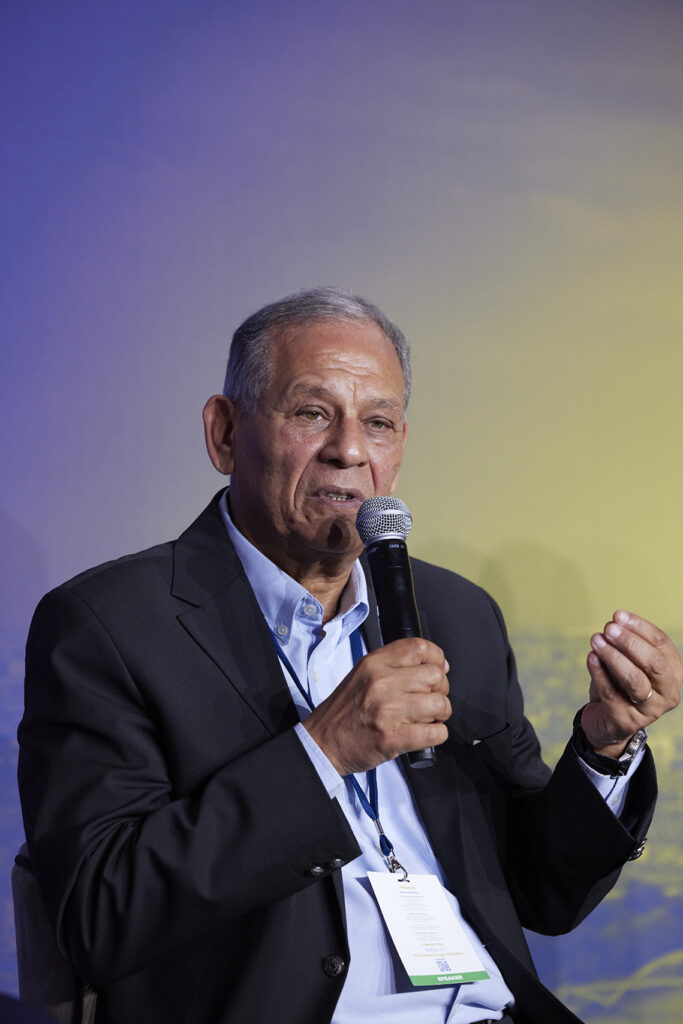In an exclusive interview at EIPC 2025 in Paris, Reform and Development Party chief Anwar E. El Sadat offered a stark view of Cairo’s Gaza policy—marked by quiet tensions, strategic restraint, and deep mistrust toward Hamas
Anwar E. El Sadat—chair of the Committee of Civil and Political Rights at Egypt’s National Council for Human Rights, president of the liberal, centrist Reform and Development Party, and nephew of the late President Anwar Sadat—sat down with The Media Line in Paris after speaking on a high-stakes panel at the 2025 International Policy Conference (EIPC), hosted by ELNET, the European Leadership Network. The panel was titled “The Day After: Building a Comprehensive Recovery Plan for Gaza and Beyond.”
Joining him on the panel were Massimo Khairallah of the Med-Or Foundation and Ambassador Joshua Zarka, Israel’s ambassador to France and former deputy director general for strategic affairs at the Foreign Ministry. Although the discussion was conducted with diplomatic courtesy, Zarka appeared visibly uneasy as El Sadat aired Egypt’s grievances toward Israel and its complicated but vital relationship with Hamas.
Turning to the domestic scene, El Sadat defended President Abdel Fattah el-Sisi’s restrained response to the war in Gaza, despite widespread anger among Egyptians over the humanitarian crisis unfolding there.

“El-Sisi was under severe pressure from public opinion, from the Nasserists, from the leftists … but I think he was wise,” he noted.
While public calls to expel the Israeli ambassador or recall Egypt’s envoy from Tel Aviv were growing louder, el-Sisi chose a quieter path—avoiding direct confrontation while maintaining lines of communication with both sides.
That policy, however, has not prevented friction between Cairo and Jerusalem. El Sadat pointed to recent Israeli military operations—namely, the seizure of the Philadelphi Corridor and the closure of the Rafah crossing—as deeply problematic.